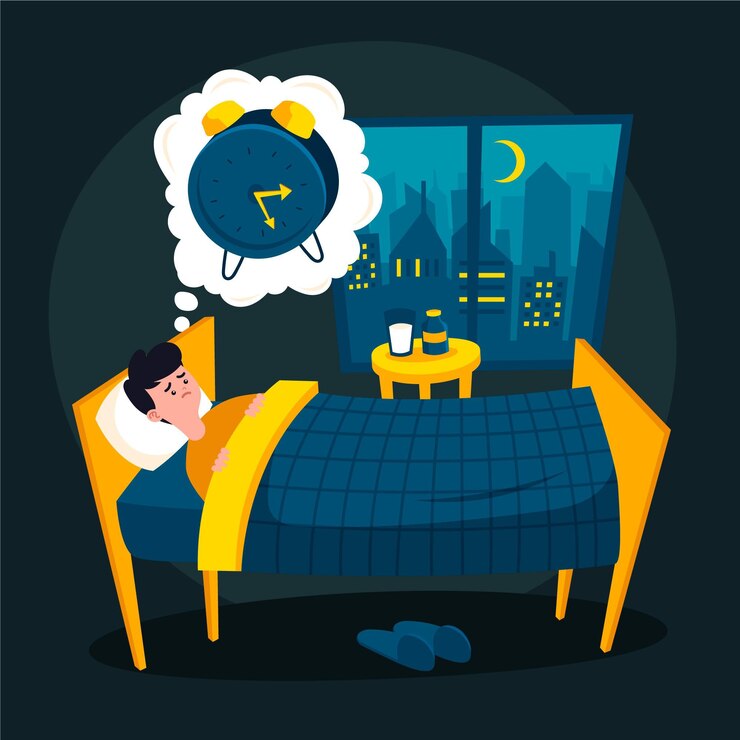
Navigating Bipolar Disorder and Sleep Patterns: A Simple Guide
Introduction: Bipolar disorder is a mental health condition characterized by extreme mood swings, including manic and depressive episodes. Sleep disturbances are common among individuals with bipolar disorder and can significantly impact their overall well-being. Let’s explore how to navigate bipolar disorder and sleep patterns in simple terms.
Understanding Bipolar Disorder and Sleep Patterns: Sleep plays a crucial role in regulating mood and overall health. However, individuals with bipolar disorder often experience disruptions in their sleep patterns, which can exacerbate mood symptoms and affect daily functioning.
Mania and Hypomania: During manic or hypomanic episodes, individuals with bipolar disorder may experience reduced need for sleep or insomnia. They may feel energized, restless, and have racing thoughts, making it difficult to fall asleep or stay asleep.
Depression: Conversely, during depressive episodes, individuals with bipolar disorder may experience hypersomnia, or excessive sleepiness. They may struggle to get out of bed, feel fatigued throughout the day, and oversleep as a way to cope with feelings of sadness or hopelessness.
Effects of Sleep Disturbances: Irregular sleep patterns can worsen mood symptoms and trigger episodes of mania or depression in individuals with bipolar disorder. Sleep disturbances can also impair cognitive function, increase irritability, and interfere with daily activities and relationships.
Managing Bipolar Disorder and Sleep Patterns:
- Establish a Routine: Maintaining a consistent sleep schedule by going to bed and waking up at the same time each day can help regulate sleep patterns and stabilize mood.
- Create a Sleep-Friendly Environment: Make your bedroom conducive to sleep by keeping it dark, quiet, and comfortable. Limit exposure to electronic devices before bedtime.
- Practice Relaxation Techniques: Engage in relaxation techniques such as deep breathing, meditation, or progressive muscle relaxation to promote relaxation and improve sleep quality.
- Limit Stimulants: Avoid stimulants such as caffeine, nicotine, and alcohol, especially close to bedtime, as they can interfere with sleep.
- Seek Professional Help: If sleep disturbances persist despite self-help strategies, seek guidance from a healthcare professional or mental health provider. They can offer personalized treatment options, such as medication or therapy, to address sleep issues and manage bipolar disorder symptoms.
Conclusion: Navigating bipolar disorder and sleep patterns can be challenging, but with understanding and proactive management strategies, individuals can improve their sleep quality and overall well-being. By establishing a consistent sleep routine, creating a sleep-friendly environment, practicing relaxation techniques, limiting stimulants, and seeking professional help when needed, individuals with bipolar disorder can better manage their condition and enhance their quality of life.
Sleep disturbances are common among individuals with bipolar disorder, but managing them is essential for overall well-being. Here’s what you need to know:
- Understanding Sleep Patterns: Bipolar disorder can disrupt sleep patterns, leading to insomnia or hypersomnia (excessive sleep). Changes in sleep can also trigger mood episodes, making it essential to establish a consistent sleep routine.
- Creating a Sleep Routine: Establish a regular sleep schedule by going to bed and waking up at the same time each day, even on weekends. Avoiding caffeine and electronic devices before bedtime can also promote better sleep.
- Managing Insomnia: If you struggle with insomnia, practice relaxation techniques such as deep breathing or meditation before bed. Avoid stimulating activities and bright lights in the evening to signal to your body that it’s time to wind down.
- Addressing Hypersomnia: If you experience excessive sleepiness, set an alarm to wake up at a consistent time each morning and avoid napping during the day. Engaging in regular physical activity can also help boost energy levels.
- Medication and Therapy: Talk to your healthcare provider if sleep disturbances persist despite lifestyle changes. They may adjust your medication regimen or recommend therapy to address underlying issues contributing to sleep problems.
- Creating a Sleep-Friendly Environment: Make your bedroom conducive to sleep by keeping it dark, quiet, and cool. Invest in a comfortable mattress and pillows to promote restful sleep.
By prioritizing sleep hygiene and seeking help when needed, individuals with bipolar disorder can better manage sleep disturbances and support their overall mental health.
To seek medical advice, always consult a Doctor. Here are our recommended experts. Click here
To read more on Neurological Disorders. Click Here



